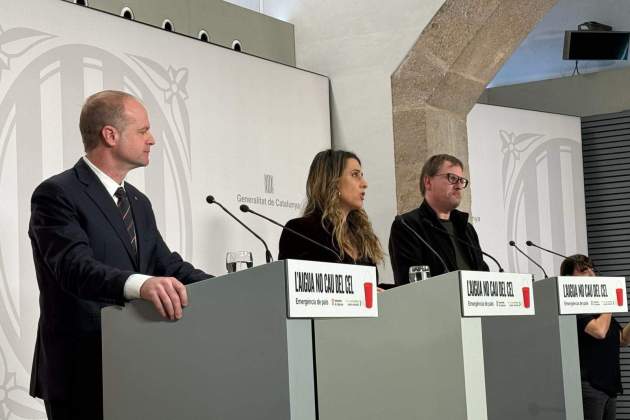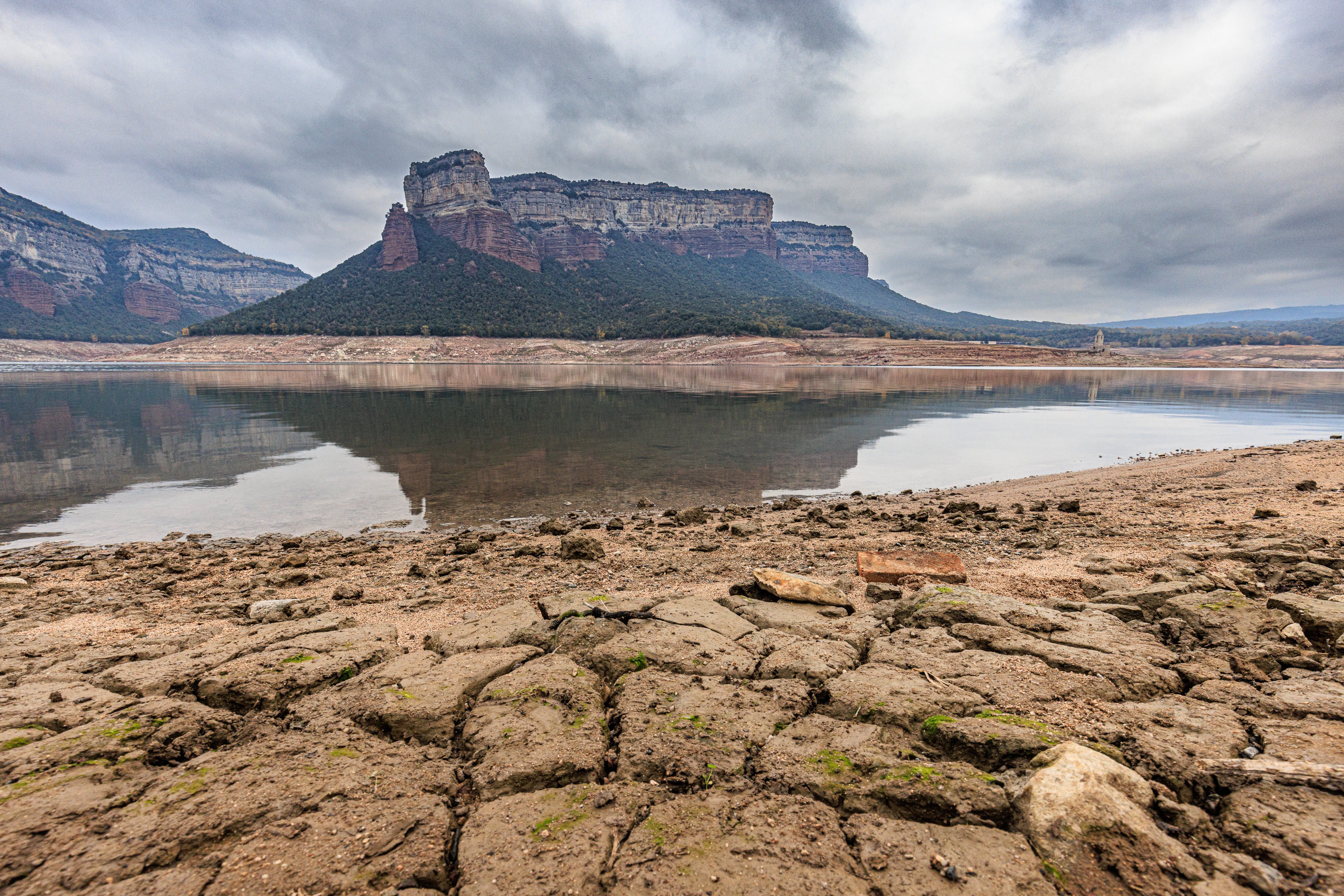After this Thursday's meeting of the Catalan government's drought committee, the executive has announced that a dozen municipalities in the north-eastern Alt Empordà county that depend on the Darnius-Boadella reservoir - which is in an "extreme" situation, according to the Catalan Water Agency (ACA) - will enter phase 2 of the drought emergency, meaning that they will have to face further restrictions on water usage. The reservoir, on which municipalities such as Figueres, Roses and Cadaqués depend, is at just over 11% of its capacity, with less than 7 cubic hectometres behind the dam. This new emergency measure will enter into force next week, when it is published in the official Catalan government gazette (DOGC).
Specifically, the municipalities affected are Figueres, Roses, Cadaqués, Castelló d'Empúries, Cabanes, El Far d'Empordà, Fortià, Llers, Riumors, Santa Llogaia d'Àlguema, Vila-sacra and Villamala. These localities, will have to face more severe restrictions, such as a reduction in litres per person per day available to the municipality from 200 to 180 l/person per day, as well as the prohibition on watering private gardens, a ban on using showers at sports facilities and on filling private swimming pools. In addition, all recreational and ornamental uses of water, such as fountains, ice rinks, water games and rides, are also prohibited. Public gardens can only be wateed with phreatic or reused water.
Drought status in Catalonia's internal catchments (non-grey area) by municipality: 0 Normal (blue); 1 Pre-Alert (green); 2 Alert (yellow); 3 Exception (orange); 5.1 Emergency 1 (pink); 5.2 Emergency 2 (purple).
Only indoor swimming pools in registered sports facilities and outdoor swimming pools used throughout the year for federated sports practice, with water recirculation systems, are excluded from the filling ban. In these cases, partial refilling will be allowed, but the use of showers is in all cases prohibited. In this phase, the only exceptions to the total filling or partial refilling are for pools for special therapeutic use, both in institutions as well as some private pools. Also excluded are seawater swimming pools, which can be filled with seawater, as long as they are emptied without connection to the sewage networks.
"Extremely critical" situation
In a press conference, the Catalan government spokesperson Patrícia Plaja explained that the drought situation is "worsening every day" and is "extremely critical", since the short- and medium-term weather forecasts are not optimistic. "We are facing the worst climate crisis that our country has experienced in terms of drought, dynamic and unpredictable," she said, in a joint appearance with secretary general of the climate action ministry, Josep Vidal, and the secretary of business and competitiveness, Albert Castellanos. However, the spokesperson stressed the need to guarantee the supply of water, not only for domestic consumption, but for economic activity.

Eased restrictions on rural sector and private desalination plants for economic activity
The committee has also approved the option of mobile private desalination plants as an economic activity, with prior permission from the public administrations - in terms of the use of public space - in order to also ease pressure on the public water network. As well this week, the Generalitat acceded to the demands of Catalan farmers, who, on a war footing for weeks due to the serious structural crisis affecting the primary sector, demanded the easing of drought restrictions on agriculture and livestock to avoid further damage. The climate action minister, David Mascort, had announced that the government was open to considering this last measure and the drought committee has now approved this "lightening" of restrictions.

